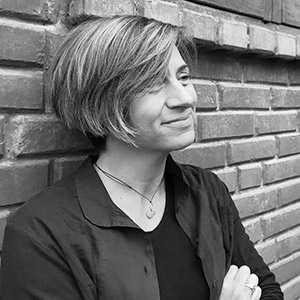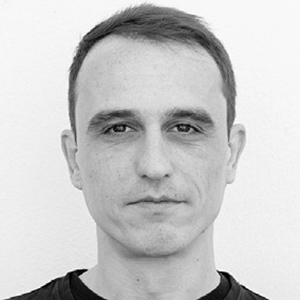COŁLEÇTIVE
The collective coordinates the Decolonize Hellas initiative, is responsible for the program, as well as for any collaborations, and makes decisions horizontally.
Nikolas Kosmatopoulos
 I am an anthropologist, assistant professor in the Department of Politics at the American University of Beirut. I study international policy institutions, focusing on expert politics, epistemic violence, techno-morals, the cosmopolitanisms of humanitarianism and peace, and the cosmopolitics of solidarity and political equality. This year, as a member of the Institute for Advanced Study in Princeton, I am completing a monograph on violence and expertise in peacemaking and crisis prevention in post-war Lebanon. Beyond this, I am very interested in the sea as a fluid background of economic and transnational power, as well as terraqueous solidarities, maritime radicalisms and political imaginaries of equality and insurgent cosmopolitics. At Decolonize Hellas I hope to embark on a collective, creative and critical approach to terracentric postcolonial ideas in society and social science, and especially to develop research-activism agendas around - for example - the theorization and globalization of the popular wisdom encapsulated in the proverb "The Aegean belongs to its fish".
I am an anthropologist, assistant professor in the Department of Politics at the American University of Beirut. I study international policy institutions, focusing on expert politics, epistemic violence, techno-morals, the cosmopolitanisms of humanitarianism and peace, and the cosmopolitics of solidarity and political equality. This year, as a member of the Institute for Advanced Study in Princeton, I am completing a monograph on violence and expertise in peacemaking and crisis prevention in post-war Lebanon. Beyond this, I am very interested in the sea as a fluid background of economic and transnational power, as well as terraqueous solidarities, maritime radicalisms and political imaginaries of equality and insurgent cosmopolitics. At Decolonize Hellas I hope to embark on a collective, creative and critical approach to terracentric postcolonial ideas in society and social science, and especially to develop research-activism agendas around - for example - the theorization and globalization of the popular wisdom encapsulated in the proverb "The Aegean belongs to its fish".
Penelope Papailias
 I am a social anthropologist at the University of Thessaly. My research centers on cultural memory and the history of the present, the politics of witnessing and archives, visuality and violence, digital culture and technosocialities, from postcolonial, anti-racist and feminist perspectives. I am currently writing a book on the materialities and medialities through which contested deaths haunt contemporary cultural debates and political struggles in Greek society. As a hyphenated Greek and migrant in reverse, I am skeptical of homelands and origin stories. I hope Decolonize Hellas can become a welcoming refuge for other nomads and bastards, and a platform for collaboration, conviviality and public-facing academic engagement.
I am a social anthropologist at the University of Thessaly. My research centers on cultural memory and the history of the present, the politics of witnessing and archives, visuality and violence, digital culture and technosocialities, from postcolonial, anti-racist and feminist perspectives. I am currently writing a book on the materialities and medialities through which contested deaths haunt contemporary cultural debates and political struggles in Greek society. As a hyphenated Greek and migrant in reverse, I am skeptical of homelands and origin stories. I hope Decolonize Hellas can become a welcoming refuge for other nomads and bastards, and a platform for collaboration, conviviality and public-facing academic engagement.
Despina Lalaki
 I am a historical sociologist interested in long-term social and cultural changes, changing modes of consciousness, the ideological and cultural foundations of the state and the role of intellectuals. I teach for the City University of New York - CUNY and write for academic and non-academic audiences. Currently I am working on a book project in which I investigate the ways American policies of economic liberalism and capitalist democracy invested symbolically in Hellenism radically transforming it in the process. A sociology of archaeology and an archaeology of the Greek state, the book focuses on the field of archaeology as a privileged place in the history of the Greek nation-state and Western civilization at large and central node in a complex network of trans-national institutional and intellectual relations.
I am a historical sociologist interested in long-term social and cultural changes, changing modes of consciousness, the ideological and cultural foundations of the state and the role of intellectuals. I teach for the City University of New York - CUNY and write for academic and non-academic audiences. Currently I am working on a book project in which I investigate the ways American policies of economic liberalism and capitalist democracy invested symbolically in Hellenism radically transforming it in the process. A sociology of archaeology and an archaeology of the Greek state, the book focuses on the field of archaeology as a privileged place in the history of the Greek nation-state and Western civilization at large and central node in a complex network of trans-national institutional and intellectual relations.
Fotini Tsibiridou
 Fotini Tsibiridou is Professor of Social Anthropology at the Department of Balkan, Slavic and Oriental Studies at the University of Macedonia and acting Director of the Laboratory for the Study of Culture, Borders and Gender. She has done fieldwork in a former refugee village and among the Pomaks in Greek Thrace, in Macedonian and Peloponnese villages and the Sultanate of Oman. She has also researched nationalism and multiculturalist discourses and practices in Greek Thrace, as well as gender, citizenship and creative counterpublics in Istanbul. Currently (since 2018) she is researching two topics: post-Ottoman religiosity and gendered subjectivity in the frame of post-colonial critique (Balkans, Turkey, the Middle East), and feminist and other decolonizing methodologies deployed in creative protests and resistance practices in Mediterranean cities in the way to/of cosmopolitics.
Fotini Tsibiridou is Professor of Social Anthropology at the Department of Balkan, Slavic and Oriental Studies at the University of Macedonia and acting Director of the Laboratory for the Study of Culture, Borders and Gender. She has done fieldwork in a former refugee village and among the Pomaks in Greek Thrace, in Macedonian and Peloponnese villages and the Sultanate of Oman. She has also researched nationalism and multiculturalist discourses and practices in Greek Thrace, as well as gender, citizenship and creative counterpublics in Istanbul. Currently (since 2018) she is researching two topics: post-Ottoman religiosity and gendered subjectivity in the frame of post-colonial critique (Balkans, Turkey, the Middle East), and feminist and other decolonizing methodologies deployed in creative protests and resistance practices in Mediterranean cities in the way to/of cosmopolitics.
Stathis Papastathopoulos
 I am an assistant professor at the Department of Psychology at the University of Ioannina. I am interested in the colonial constitution of the history and present of the discipline of psychology, on post-developmental and black feminist approaches to the study of minority and refugee groups and subjects, and the politics and genealogies of abolition. I am currently working on a monograph on the decolonization of the academic constitution and expertise of psychology in the context of Hell-as.
I am an assistant professor at the Department of Psychology at the University of Ioannina. I am interested in the colonial constitution of the history and present of the discipline of psychology, on post-developmental and black feminist approaches to the study of minority and refugee groups and subjects, and the politics and genealogies of abolition. I am currently working on a monograph on the decolonization of the academic constitution and expertise of psychology in the context of Hell-as.
Vangelis Poulios
 Vangelis Poulios studied Political Science and History (BA) and Social Anthropology (MA) at Panteio University in Athens. He currently works as a translator and editor focusing on Black literature and theory, postcolonial critique and decolonial studies.
Vangelis Poulios studied Political Science and History (BA) and Social Anthropology (MA) at Panteio University in Athens. He currently works as a translator and editor focusing on Black literature and theory, postcolonial critique and decolonial studies.
Κaterina Sergidou
 Katerina Sergidou is a Cypriot social activist and a member of the feminist collective Assembly 8 March. Additionally, she is a member of the Basque research-feminist group Ezdonk Oraindik. She did undergraduate studies in history-archaeology at EKPA and she studied communication & culture at Panteion University and social anthropology at the University of the Basque Country. Currently she is a PhD candidate on gender and feminism at Panteion University and the University of the Basque Country. Her research interests include carnival rituals, feminist methodologies in social research, feminist writing, the concept of feminist hegemony, and feminist-cultural performances in southern social movements, with a focus on the Spanish south, Cyprus, and Greece. She also works as a translator and researcher on gender violence and feminist writing and is on the editorial board of the journal Marginalia notes on the margins. Her published writings are available here.
Katerina Sergidou is a Cypriot social activist and a member of the feminist collective Assembly 8 March. Additionally, she is a member of the Basque research-feminist group Ezdonk Oraindik. She did undergraduate studies in history-archaeology at EKPA and she studied communication & culture at Panteion University and social anthropology at the University of the Basque Country. Currently she is a PhD candidate on gender and feminism at Panteion University and the University of the Basque Country. Her research interests include carnival rituals, feminist methodologies in social research, feminist writing, the concept of feminist hegemony, and feminist-cultural performances in southern social movements, with a focus on the Spanish south, Cyprus, and Greece. She also works as a translator and researcher on gender violence and feminist writing and is on the editorial board of the journal Marginalia notes on the margins. Her published writings are available here.
Georgos Tsimouris
 Georgos graduated from the Department of Political Sciences, Panteion University, Athens (1980). He studied Sociology at the University of Essex, UK (M.A. 1994) and Social Anthropology at the University of Sussex, UK (PhD 1998). For his doctoral thesis he conducted research among refugees of the Greco -Turkish war of 1922 from Asia Minor. He published in Greek and English on forced migration, refugee condition, nationalism, intercultural education and maritime anthropology. He is the author of two books, “Imvrii: Figades ap’ ton topo mas omirii stin patrida”, [Imvrii: Fugitives from our place, hostages in our homeland”] Athens, 2007 & 2013), concerning the forced migration and the trajectory of the Greek community of Imvros (Gökceada) and, “Emeis i nautiki mparkarismeni kai xemparki: Mia anthropologiki prossgissi”, [We mariners on board and on land: An anthropological approach], Athens, Da Vinci, 2021. He is currently Emeritus Professor of the Department of Social Anthropology, Panteion University, Athens and he has been visiting fellow at the University of Durham, Department of Social Anthropology.
Georgos graduated from the Department of Political Sciences, Panteion University, Athens (1980). He studied Sociology at the University of Essex, UK (M.A. 1994) and Social Anthropology at the University of Sussex, UK (PhD 1998). For his doctoral thesis he conducted research among refugees of the Greco -Turkish war of 1922 from Asia Minor. He published in Greek and English on forced migration, refugee condition, nationalism, intercultural education and maritime anthropology. He is the author of two books, “Imvrii: Figades ap’ ton topo mas omirii stin patrida”, [Imvrii: Fugitives from our place, hostages in our homeland”] Athens, 2007 & 2013), concerning the forced migration and the trajectory of the Greek community of Imvros (Gökceada) and, “Emeis i nautiki mparkarismeni kai xemparki: Mia anthropologiki prossgissi”, [We mariners on board and on land: An anthropological approach], Athens, Da Vinci, 2021. He is currently Emeritus Professor of the Department of Social Anthropology, Panteion University, Athens and he has been visiting fellow at the University of Durham, Department of Social Anthropology.
Chris Zisis
 Chris Zisis holds a B.A. degree in Philosophy and History of Science (National Kapodistrian University of Athens, Greece) and a Master's Degree in the field of Heritage/Museum Studies (European University Viadrina Frankfurt/Oder). He sumbitted his PhD Thesis at the Institute of Cultural Anthropology, Hamburg University, and since Spring Semester 2017 has been working consistently as a Lecturer at the department of Social Work & Public Health, University of Applied Sciences Kiel/FH-Kiel, as well as at the aforementioned department in Hamburg. Along with his standard research foci, which intersect fields such as Museum/Heritage Studies, critical migration research, public anthropology, critical and anti-racist education, he is equally interested in examining artistic practices and interventions, new social movements/non movements, eventually how critical knowledge is co-produced by “bottom-up”, unofficial archives and actors, not only in museum spaces and memory sites, but public space.
Chris Zisis holds a B.A. degree in Philosophy and History of Science (National Kapodistrian University of Athens, Greece) and a Master's Degree in the field of Heritage/Museum Studies (European University Viadrina Frankfurt/Oder). He sumbitted his PhD Thesis at the Institute of Cultural Anthropology, Hamburg University, and since Spring Semester 2017 has been working consistently as a Lecturer at the department of Social Work & Public Health, University of Applied Sciences Kiel/FH-Kiel, as well as at the aforementioned department in Hamburg. Along with his standard research foci, which intersect fields such as Museum/Heritage Studies, critical migration research, public anthropology, critical and anti-racist education, he is equally interested in examining artistic practices and interventions, new social movements/non movements, eventually how critical knowledge is co-produced by “bottom-up”, unofficial archives and actors, not only in museum spaces and memory sites, but public space.

